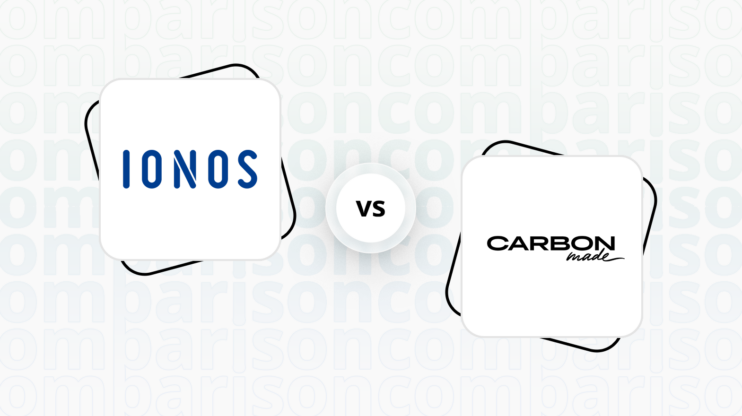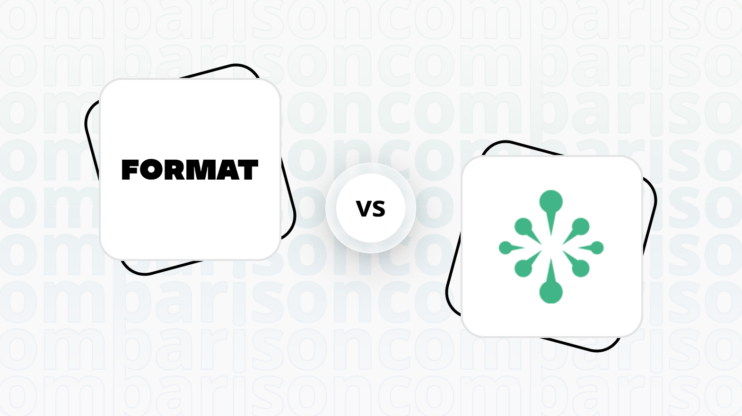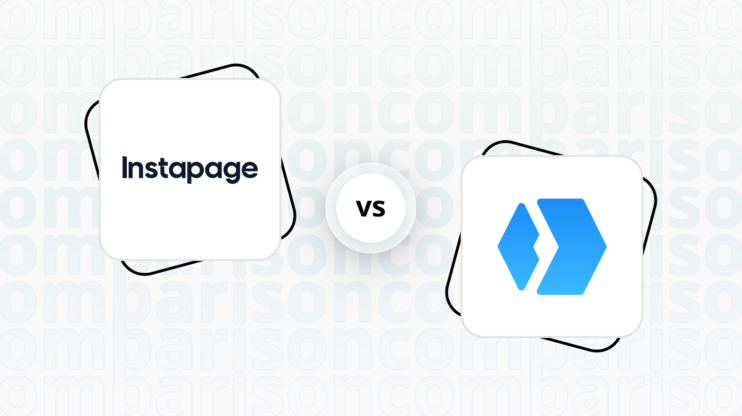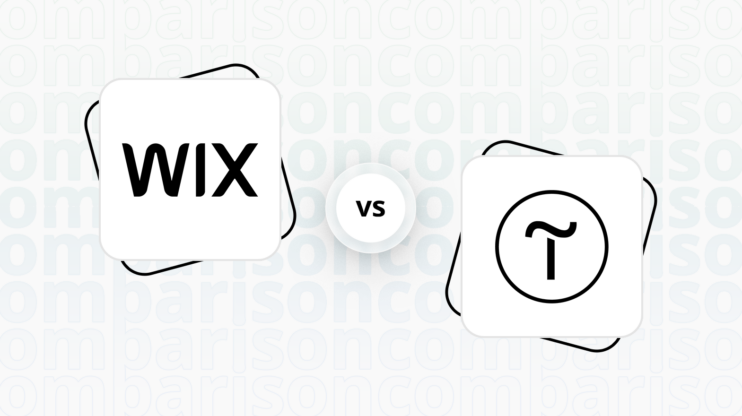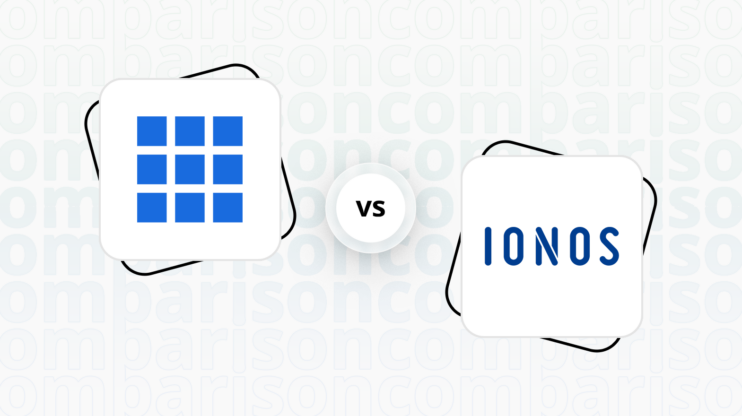Final verdict
Siter.io vs Yola: Both platforms offer unique features, but they cater to different needs and user preferences.
-
Siter.io (Overall Grade: 5.1/10)
is ideal for users who prioritize design flexibility and ease of use. Its unique freehand design tool and Figma integration make it a strong choice for designers and small businesses looking to create visually appealing websites without coding. However, it falls short in ecommerce capabilities and hosting quality, making it less suitable for larger-scale online stores. -
Yola (Overall Grade: 6.5/10)
excels in providing a user-friendly experience with a wide range of templates and robust ecommerce features. It is well-suited for individuals and small businesses looking to establish a professional online presence. Yola’s comprehensive hosting quality, better customer support, and more extensive marketing tools make it a more versatile option compared to Siter.io.

|

|
|
|---|---|---|
|
Design functionalities & templates |
7.5 |
7.2 |
|
Ease of use |
8.3 |
8.0 |
|
Ecommerce |
3.4 |
5.7 |
|
Website Editors |
7.8 |
6.7 |
|
Product testing options |
8.2 |
7.5 |
|
Price |
8.1 |
8.1 |
|
Hosting quality |
3.9 |
7.2 |
|
Website speed optimization |
1.5 |
7.5 |
|
Plugins and integrations |
5.5 |
6.3 |
|
Marketing features |
2.6 |
6.5 |
|
Customer support |
4.1 |
6.3 |
|
Security |
6.8 |
8.3 |
|
AI capabilities |
0.0 |
0.0 |
|
User Management |
7.1 |
7.3 |
| Overall |
5.1 |
6.5 |
Best for ecommerce
 3.4
3.4
 5.7
5.7
Verdict
: Yola is better suited for ecommerce with its comprehensive features, while Siter.io excels in design flexibility but lacks robust ecommerce tools.
-
Siter.io
: Siter.io offers a unique design experience with its drag-and-drop interface and Figma integration. However, its ecommerce capabilities are limited, making it less ideal for businesses focused on online sales. The platform supports basic ecommerce features like shopping carts and checkout but lacks advanced tools and scalability options. -
Yola
: Yola provides a more complete ecommerce solution with features like product catalog management, multiple payment gateways, and detailed analytics. It supports up to 1000 products without transaction fees and offers various customization options for product pages. Yola’s ecommerce capabilities make it a better choice for small to medium-sized businesses looking to establish an online store.
Best for informational & business websites
 7.2
7.2
 7.4
7.4
Verdict
: Yola slightly edges out Siter.io for informational and business websites, thanks to its comprehensive approach to speed optimization and robust customer support.
-
Siter.io
: Siter.io offers a unique freehand design tool and built-in Figma plugin, making it a strong contender for users who prioritize creative freedom and design flexibility. Its drag-and-drop interface and responsive design capabilities make it easy to create professional-looking websites without coding knowledge. However, it falls short in hosting quality and customer support compared to Yola. -
Yola
: Yola provides a user-friendly platform with a wide range of customizable templates, making it ideal for individuals and small businesses. Its comprehensive speed optimization strategies and robust customer support make it a reliable choice for creating and managing an online presence. When comparing Siter.io vs Yola, Yola’s extensive features and support options make it a better fit for informational and business websites.
Detailed comparison
Design functionalities & templates
Design FunctionalitiesRepresents how well each platform allows for creative design and customization of websites.Score Components:
- Template Variety (30%): Range and quality of design templates.
- Customization (30%): Flexibility and options for design alterations.
- User Interface (20%): Ease and intuitiveness of the design process.
- Responsiveness (10%): Adaptability to different devices and screen sizes.
- Innovation (10%): Unique design features and tools.
 7.5
7.5
 7.2
7.2
🏆
Winner: Siter.io.
While both platforms offer a range of design functionalities and templates, Siter.io edges out with its unique freehand design tool and built-in Figma plugin, offering more creative freedom and customization flexibility.
Siter.io includes a handful of customizable templates for various website types, such as landing pages, portfolios, and e-commerce sites, ensuring users can start with a solid foundation and tailor each site to their needs. However, the limited number of templates is compensated with a UI which is very similar to design tools like Figma and AdobeXD. Additionally Siter.io has built in Figma plugin, which helps to export Figma designs directly to Siter.io platform, and make changes and tweaks right on Siter.io.
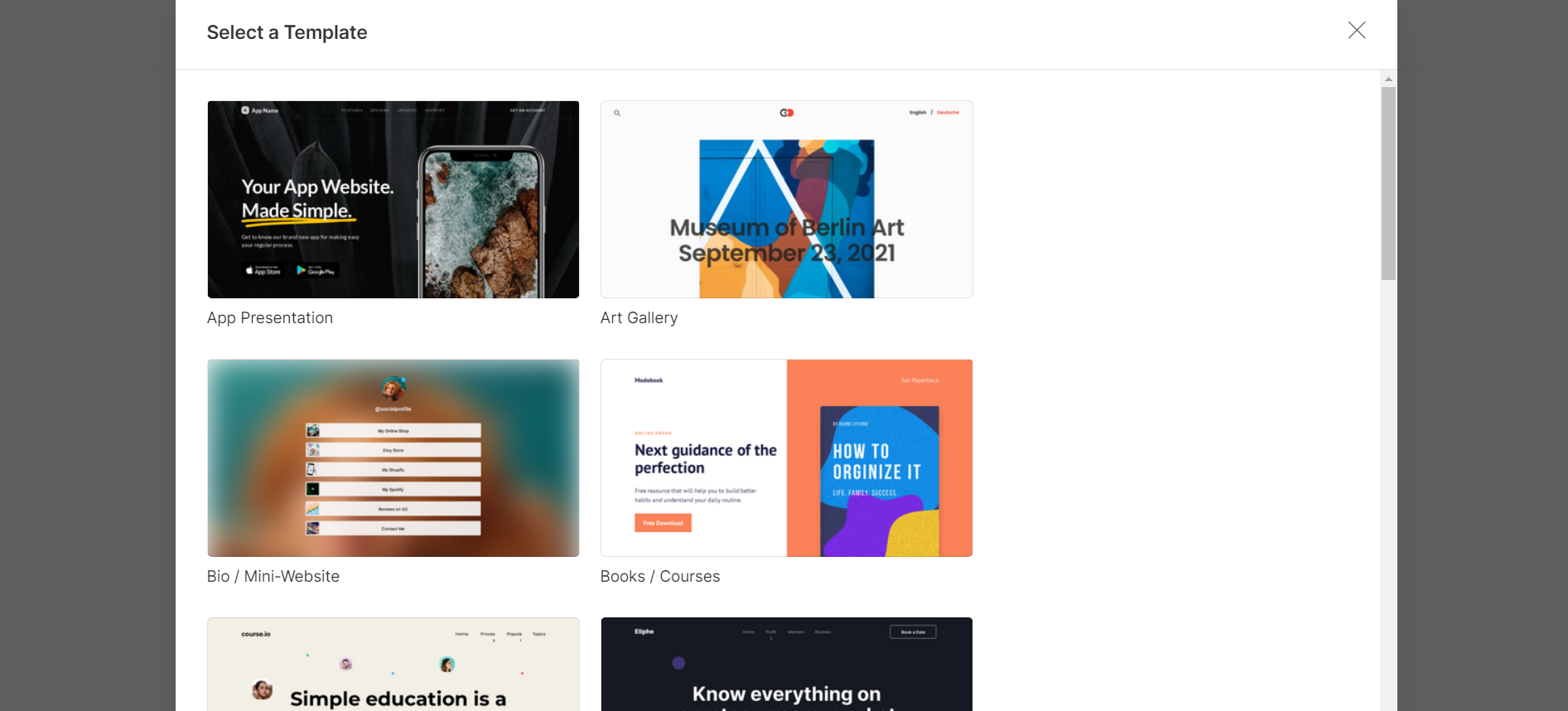

On the other hand, Yola offers a diverse range of templates and designs, catering to various types of websites, from personal blogs to professional business sites. Users can choose from a wide selection of themes, each customizable to fit their specific needs and preferences. With hundreds of templates available, Yola ensures that there is something for everyone, regardless of their niche or industry. This variety, coupled with the platform’s user-friendly design tools, makes it easy for users to create a unique and visually appealing website without needing advanced technical skills.


Get a head start on website creation with AI
Create a custom website tailored to your business needs 10X faster with 10Web AI Website Builder!
Ease of use
Ease of useReflects the platform’s overall user-friendliness.Score
Components:
- Learning curve (40%): Quickness and ease of getting started.
- Interface design (30%): Simplicity and intuitiveness of layout.
- User guidance (20%): Quality of tutorials and support.
- Flexibility (10%): Adaptability to various user skills.
 8.3
8.3
 8.0
8.0
🏆 Winner: Siter.io
. Scoring 8.3, Siter.io edges out Yola, which scored 8.0, in terms of ease of use. Both platforms are designed with simplicity in mind, but Siter.io’s unique feature of importing designs from Figma gives it an edge, making it simpler for users to transform their designs into functional websites.
Learning Resources
🏆 Winner: Siter.io
. Both platforms offer a range of learning resources, but Siter.io’s resources emphasize its user-friendly tools and features, enabling the quick and intuitive creation of professional-looking websites.
For ecommerce
EcommerceMeasures the platform’s effectiveness in supporting online business activities.Score Components:
- Ecommerce themes and templates (20%): Variety and design of templates.
- Product management (25%): Ease of managing and organizing products.
- Payment options (25%): Variety and convenience of payment methods.
- Ecommerce features (20%): Features for managing an ecommerce store.
- Integration (10%): Compatibility with external e-commerce tools and services.
 3.4
3.4
 5.7
5.7
When it comes to ecommerce, Yola has a slight edge over Siter.io. Yola provides an easy-to-use, drag-and-drop website builder with ecommerce capabilities through an integration with Ecwid, allowing for the sale of up to 1000 products without transaction fees and supporting multiple currencies and payment services. However, its ecommerce features may be limited by the lack of tiered options for scalability and a conventional CMS dashboard, as well as the absence of a marketplace for extensions and plugins. The platform’s themes are not specifically optimized for ecommerce, which might require users to undertake significant design modifications.

|

|
|
|---|---|---|
|
Ecommerce themes and templates |
4.5 |
5.5 |
|
Product page customization |
6.5 |
6.8 |
|
Payment processing and commissions |
3.0 |
7.0 |
|
POS capabilities |
2.0 |
4.5 |
|
Payment gateways |
3.5 |
7.5 |
|
Product numbers |
2.5 |
7.0 |
|
Additional ecommerce features |
3.0 |
6.0 |
Siter.io ecommerce features:
- Shopping cart
- Checkout
- Purchase button
Yola ecommerce features:
- Shipping and Tax configurations
- Product Catalog Management
- Ability to checkout as guest
- Analytics and reporting
- Promotions features
Ecommerce themes & templates
Siter.io has only a few ecommerce specific templates, however its built in Figma integration enables the use of a variety of third-party website templates designed in Figma to create a fully functional website directly on the platform. On the other hand, Yola offers a range of templates for building websites, including those suitable for ecommerce, but the variety and design quality may not match those provided by other leading website builders like 10web or Wix. The templates are customizable, especially for users on higher-tier plans (Silver or Gold), which allow for deeper customization, including CSS editing. While Yola supports ecommerce functionality, the emphasis on the number and variety of ecommerce-specific templates is less pronounced, suggesting a more generalized approach to template offerings.
Product page customization
Siter.io prioritizes its design capabilities, offering a wide range of customization options that are only limited by the user’s skill level. Yola’s eCommerce platform offers a variety of customization options for your product pages, including the ability to manage product options and combinations. This feature is especially useful for selling items that come in different sizes, colors, or models, allowing customers to select their preferences directly from the product page. Furthermore, Yola supports variable pricing for these product options, enabling you to adjust prices based on the specific variant chosen by the customer.
Payment processing
When it comes to payment processing, Siter.io primarily serves as a website design tool rather than a dedicated ecommerce platform. While it does allow for the creation of ecommerce websites, its functionality for integrating payment gateways is quite limited. However, it’s important to note that the platform does support custom code injection, enabling users to integrate third-party payment widgets like PayPal or Stripe. Yola supports various payment gateways for online store transactions, such as PayPal, Sage Payments, and American Express, allowing users to choose based on their specific needs, including geographical availability and fee structure. While Yola doesn’t directly charge commission fees for transactions, the chosen payment gateway might impose its own fees, including transaction and possibly monthly fees. The platform focuses on e-commerce functionalities rather than direct POS system capabilities, with options to manage payment methods through the My Yola dashboard for subscriptions and new product purchases.
Website Editors
Website EditorsEvaluates the platforms’ website building and editing capabilities.Score Components:
- Customization tools (40%): Range and power of editing features.
- Editor usability (30%): User experience within the editor.
- Design flexibility (20%): Freedom in layout and design changes.
- Update and maintenance ease (10%): Simplicity of updating and maintaining the site.
 7.8
7.8
 6.7
6.7
🏆
Winner: Siter.io
. Siter.io, with a score of 7.8, offers an editor designed to empower users with the ability to create websites seamlessly without any coding skills. It features an intuitive interface, real-time collaboration, and Figma integration, enhancing productivity and creativity for designers and teams. The editor supports inserting custom code for additional functionality, accessing thousands of free icons, and integrating with Unsplash for high-quality, royalty-free photos.

Yola’s website builder editor, scoring 6.7, is designed for ease of use, allowing users to create professional-looking websites without needing coding knowledge. It offers a drag-and-drop interface, enabling users to easily add, customize, and position elements like text, images, and buttons on their web pages. The editor also provides access to a wide range of templates and customization options, including color schemes, fonts, and page layouts, to help users achieve their desired website look and feel. Additionally, Yola supports responsive design, ensuring websites look great on both desktop and mobile devices.
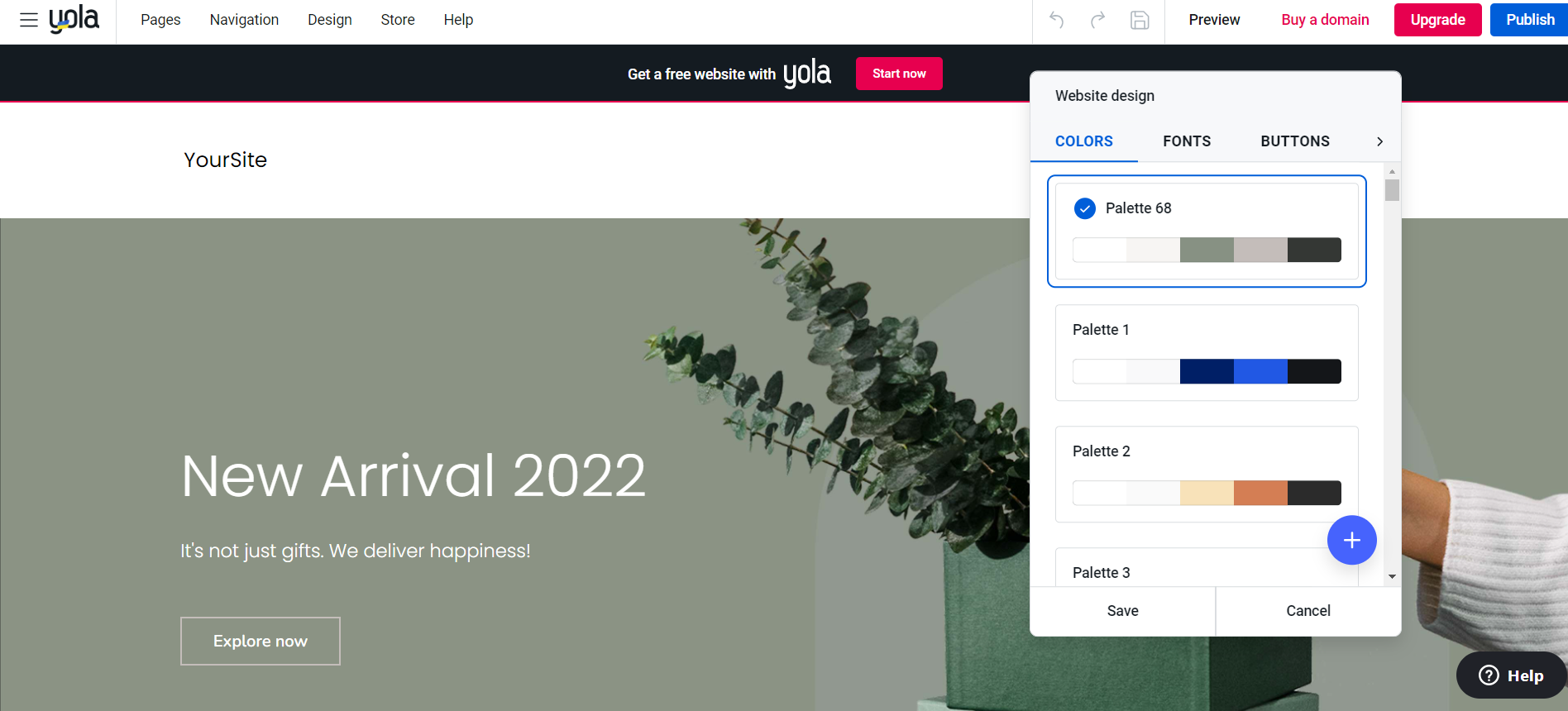
Mobile editor/app
 0
0
 4.5
4.5
🏆
Winner: Yola
. Neither Siter.io nor Yola offer a dedicated mobile editor app. However, Yola allows for some small changes to be made using a mobile browser, giving it a slight edge over Siter.io in this category. Siter.io does not offer any mobile editing capabilities, which can be a significant drawback for users who prefer to make changes on the go.
Product testing options
Product Testing OptionsAssesses the options for trying out platform features before commitment.Score Components:
- Trial quality (40%): Extent and usefulness of the trial or free version.
- Feature accessibility (30%): How many features are available to test.
- Trial duration (20%): Length of the trial period.
- Ease of transition (10%): Smoothness of moving from trial to paid plans.
 8.2
8.2
 7.5
7.5
Overall Result
:
Siter.io wins
. Siter.io scores 8.2 in product testing options, slightly higher than Yola’s 7.5. Both Siter.io and Yola offer a free version, but Siter.io stands out by allowing users to test all premium features with the free plan. On the other hand, Yola allows testing of premium features during a 30-day refundable period.

|

|
|
|---|---|---|
|
Free Plan |
Yes | Yes |
|
Trial Duration |
No | No |
|
Testing Premium Features |
All features with free plan |
During 30-day refundable period |
|
Money Back Guarantee |
No |
30-day money back guarantee |
Price
PriceLooks at the cost-effectiveness and value for money of each platform.Score Components:
- Plan value (40%): What each pricing tier offers.
- Transparency and clarity (30%): Clearness of pricing structures.
- Flexibility of plans (20%): Range of options to suit different budgets.
- Hidden costs (10%): Additional expenses not included in the plan.
 8.1
8.1
 8.1
8.1
Siter.io and Yola have similar price scores, indicating that they offer comparable value for their features.
Neither Siter.io nor Yola offers an enterprise plan, making them more suitable for individuals or small businesses rather than large corporations.

|

|
|
|---|---|---|
|
Free |
Start (Free/month): Includes unlimited teammates, up to 10 pages, 3 forms, Figma plugin, and SSL certificate. Additional websites are free, and SEO and page speed features are not included. Additionally, it’s not possible to publish any of the websites with the free plan. |
Free (Website) ($0/month): Basic features with Yola subdomain, suitable for starting a simple site. With possibility to have up to 2 websites and 2 page limit. Free (Online Store Add-on) ($0/month): Launch an online store with basic features and a limited number of products. Available as an add-on to a website plan. |
|
$0-$10 |
Solo ($8/month): For 1 website and includes 2 editors, up to 10 pages, 3 forms, Figma plugin, and SSL certificate. Additional editors cost $4 each. Value for price: 6.0 |
Bronze (Website) ($9.45/month): More resources and features, including unlimited pages and bandwidth. With possibility to have up to 5 websites. Value for price: 7.5 |
|
$10-$17 |
Plus ($14/month): Offers 3 websites with 4 editors, up to 50 pages, 5 forms, Figma plugin, and SSL certificate. Additional editors cost $6 each. Value for price: 7.5 |
Basic (Online Store Add-on) ($15.00/month): Includes inventory tracking, order management, and the ability to sell on Facebook. Available as an add-on to a website plan. Value for price: 7.0 |
|
$15-$20 |
No offering at this amount. |
Silver (Website) ($18.95/month): Advanced design features and site customization options. With possibility to have up to 25 websites. Value for price: 8.0 |
|
$20-$35 |
Pro ($29/month): Provides 5 websites, 6 editors, unlimited pages, unlimited forms, Figma plugin, and SSL certificate. Additional websites cost $8 each. Value for price: 8.5 |
Professional (Online Store Add-on) ($35.00/month): Advanced features including discount coupons, product filters, and sales on multiple platforms like Facebook and Instagram. Available as an add-on to a website plan. Value for price: 8.0 |
|
$35-$40 |
No offering at this amount. |
Gold (Website) ($35.45/month): Comprehensive plan with unlimited storage and advanced SEO tools. With possibility to have up to 25 websites. Value for price: 8.5 |
|
$90+ |
No offering at this amount. |
Unlimited (Online Store Add-on) ($99.00/month): The most extensive plan offering a vast product catalog, point of sale integrations, and more, for expanding online business. Available as an add-on to a website plan. Value for Price: 9.0 |
location. As a result in rare cases the prices displayed here can differ from the ones you see on their
websites.
Hosting quality
Hosting
qualityExamines the reliability and performance of the hosting solutions.Score Components:
- Uptime (40%): Consistency and reliability of website availability.
- Speed (30%): Loading times and performance.
- Bandwidth and storage (20%): Sufficiency of resources provided.
- Data centers (10%): Quality and distribution of hosting infrastructure.
 3.9
3.9
 7.2
7.2
Winner: Yola
. Yola outperforms Siter.io in hosting quality, offering managed cloud hosting with a 99.9% uptime guarantee and data centers in the US and EU. Yola also provides storage from 1GB on the free plan up to unlimited on the highest plan, and includes both automatic and manual backup in all their plans. Siter.io, on the other hand, offers cloud-based hosting but lacks information on bandwidth, storage limitations, and does not provide any details about its data centers or uptime statistics.

|

|
|
|---|---|---|
|
Do they offer hosting? |
Yes, but lacks information on bandwidth, storage limitations, and does not have a built-in backup option. | Yes, offers hosting with storage from 1GB on the free plan up to unlimited on the highest plan. Includes both automatic and manual backup in all their plans. |
|
Data Centers: |
Does not disclose any information about its data centers. | 5 data centers located in the US and EU. |
|
Type of hosting: |
Cloud-based hosting | Managed Cloud Hosting |
|
Uptime: |
Does not disclose uptime statistics. | 99.9% |
|
Uptime Guarantee: |
No uptime guarantee. | Yes, 99.9% |
Website Speed Optimization
Website Speed OptimizationEvaluates optimization of website loading timesScore Components:
- PageSpeed Score (30%): Google’s score indicating performance optimization.
- Loading Time (30%): The average time until a website is fully interactive.
- Mobile Optimization (15%): Optimization effectiveness for mobile devices.
- Resource Optimization (15%): Optimizing images, scripts, and other heavy resources.
- CDN Usage (10%): Use of CDN to enhance speed across geolocations.
 1.5
1.5
 7.5
7.5
🏆 Winner: Yola
Both Siter.io and Yola prioritize website performance and page speed, but Yola has a more comprehensive approach to speed optimization, which gives it an edge over Siter.io.

|

|
|
|---|---|---|
|
Focus |
Mobile Responsiveness, SEO optimization |
CDN, Caching, Code Minification, Server response time improvements, Image optimization |
|
Performance Tools |
Not disclosed |
Not disclosed |
|
Key Strategies |
Mobile Responsiveness, SEO optimization |
CDN, Caching, Code Minification, Server response time improvements, Image optimization |
|
Load Times |
Not disclosed |
Varies widely, depending on the optimization, website complexity |
|
Page Speed Scores Range |
Not disclosed |
Varies widely, depending on the optimization, website complexity |
|
Core Web Vitals Improvement |
Not disclosed |
Emphasis on LCP, FID, CLS improvements |
Yola has a comprehensive approach to speed optimization, including CDN, caching, code minification, server response time improvements, and image optimization. It also places emphasis on improving Core Web Vitals, specifically LCP, FID, and CLS. However, both load times and Page speed scores vary widely, depending on the optimization and website complexity.
On the other hand, Siter.io focuses on mobile responsiveness and SEO optimization. However, it does not disclose any statistics about PageSpeed scores or load times, nor any information about its Core Web Vitals improvements. This lack of transparency makes it difficult to assess the effectiveness of Siter.io’s speed optimization strategies.
Get a head start on website creation with AI
Create a custom website tailored to your business needs 10X faster with 10Web AI Website Builder!
Plugins and integrations
Plugins and integrationsMeasures the range and effectiveness of additional plugins and integrations.Score Components:
- Variety of options (40%): Range of available add-ons.
- Integration smoothness (30%): Ease of integrating plugins into the site.
- Quality of plugins (20%): Functionality and reliability of the options.
- Custom integration capabilities (10%): Support for custom or third-party integrations.
 5.5
5.5
 6.3
6.3
🏆 Winner: Yola.
Yola scores 6.3, offering a variety of plugins and apps that extend its functionalities beyond its base features. It provides over 70 free apps and widgets, including social media integration, e-commerce tools, marketing and SEO enhancements, customer engagement features, and various utility widgets. Siter.io, scoring 5.5, offers limited integrations, primarily focusing on its design capabilities. However, it does support custom code injection, allowing users to incorporate third-party plugins as needed.
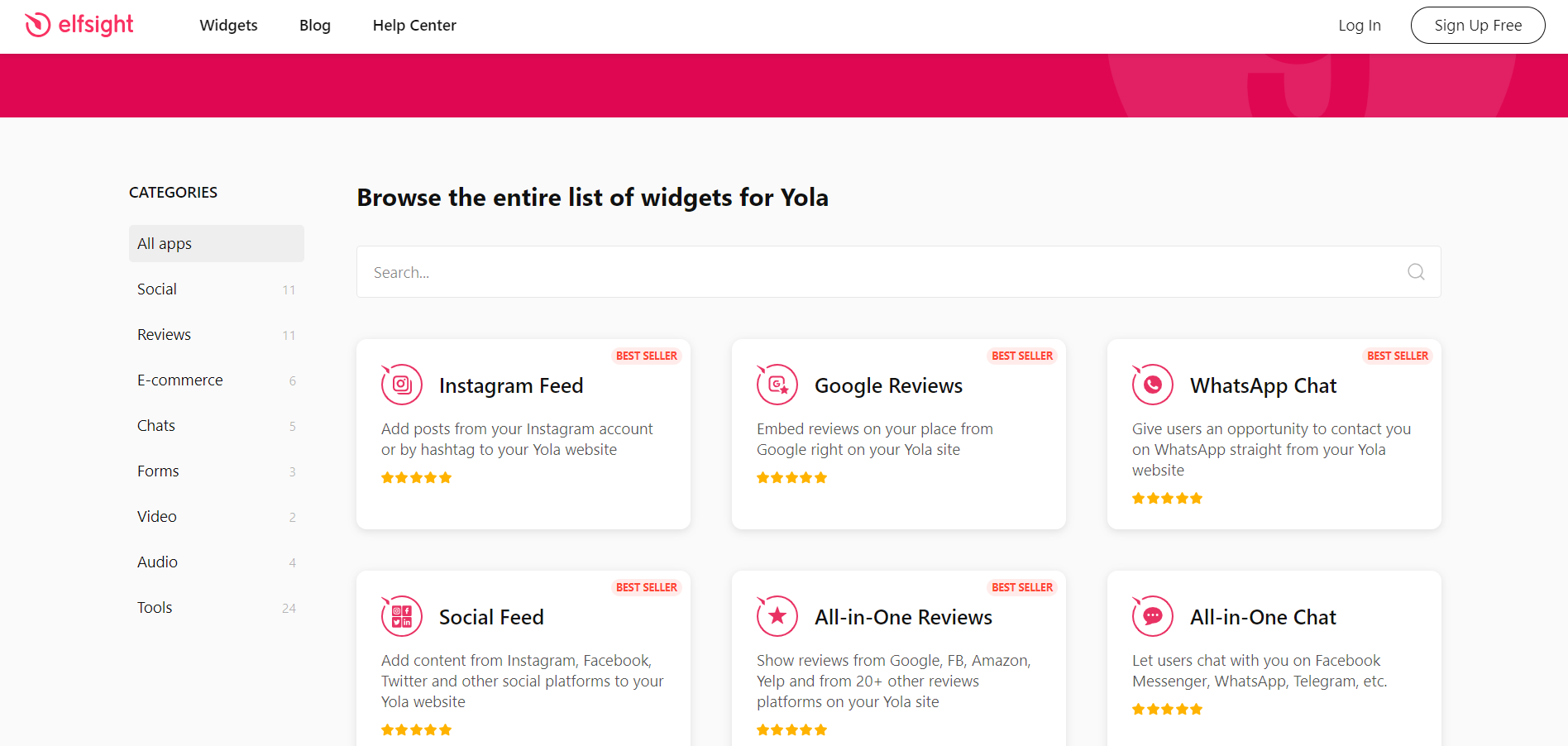
Marketing Features
Design FunctionalitiesRepresents how well each platform allows for creative design and customization of websites.Score Components:
- Template Variety (30%): Range and quality of design templates.
- Customization (30%): Flexibility and options for design alterations.
- User Interface (20%): Ease and intuitiveness of the design process.
- Responsiveness (10%): Adaptability to different devices and screen sizes.
- Innovation (10%): Unique design features and tools.
 2.6
2.6
 6.5
6.5
🏆
Overall Winner: Yola
. Yola stands out for its more comprehensive marketing tools, especially in email marketing, social media integration, and ads and promotions. Siter.io is strong in SEO features and analytics and reporting, but lacks in email marketing and social media integration.

|

|
|
|---|---|---|
|
SEO Tools |
Basic SEO features |
Basic built in SEO tools, with possibility of more advanced third party integrations |
|
Email Marketing |
No |
Available on higher plans, as well as possibility to integrate Mailchimp Email marketing |
|
Blogging |
Possible to design a simple blog using Siter.io |
Yes |
|
Social Media Integration |
No |
Yes |
|
Analytics and Reporting |
Google analytics integration |
Possibility to integrate Google Analytics |
|
Ads and Promotions |
Facebook Pixel integration |
Available on higher plans |
Customer Support
Customer supportEvaluates the quality and availability of support options.Score Components:
- Response time (40%): Speed of support responses.
- Support quality (30%): Effectiveness and helpfulness of the support.
- Availability (20%): Range of support channels (phone, chat, email).
- Resource richness (10%): Quality of self-help and educational materials.
 4.1
4.1
 6.3
6.3
🏆 Winner: Yola
. In the comparison of Siter.io vs Yola, Yola takes the lead with a more robust customer support system. Yola offers 24/7 email support, with priority responses for Bronze, Silver, and Gold customers, ensuring that users receive timely assistance. Additionally, Yola provides a call-you-back service for personalized help and supports inquiries via social media channels, making it easier for users to get the support they need.
On the other hand, Siter.io primarily relies on its extensive help center and articles for customer support. While email support is available, the platform does not specify the days or hours of operation, which can be a limitation for users needing immediate assistance. This difference in support availability and responsiveness is reflected in the customer support scores, with Yola scoring 6.3 compared to Siter.io’s 4.1.
Security
SecurityLooks at the platforms’ security measures and data protection.Score Components:
- Data protection (40%): Safeguards for user and customer data.
- SSL and encryption (30%): Implementation of secure connections.
- Compliance (20%): Adherence to industry security standards.
- Regular updates (10%): Frequency of security updates and patches.
 6.8
6.8
 8.3
8.3
🏆
Winner: Yola
. Yola takes a comprehensive approach to security, employing robust measures such as SSL encryption, DDoS mitigation, firewalls, regular software updates, data backup, and recovery, as well as security audits and testing. These measures help protect against various threats such as data interception, denial-of-service attacks, unauthorized access, and system vulnerabilities. Yola’s commitment to security is reflected in its higher security score of 8.3.
Although Siter.io, while prioritizing user privacy with a zero-knowledge storage system and multi-factor authentication, does not provide much information about its website security measures. This lack of transparency, coupled with a lower security score of 6.8, places it behind Yola in this comparison.
AI Capabilities
AI capabilitiesMeasures the effectiveness of AI-driven features and tools.Score Components:
- Automation efficiency (40%): Impact of AI on streamlining processes.
- Personalization (30%): AI-driven customization for users or customers.
- AI-Assisted design (20%): Role of AI in website design and functionality.
- Data analysis (10%): Use of AI in interpreting user data and analytics.
 0.0
0.0
 0.0
0.0

|

|
|
|---|---|---|
|
Personalized Design |
|
|
|
SEO Optimization |
|
|
|
Customer Behavior Analysis |
|
|
|
Sales Predictions |
|
|
|
Inventory Management |
|
|
|
Content Generation |
|
|
🏆 Winner: None
. Both Siter.io and Yola do not have any AI capabilities. They do not offer any AI-driven features such as personalized design, SEO optimization, customer behavior analysis, sales predictions, inventory management, or content generation. Therefore, if you are looking for a website builder with AI capabilities, neither Siter.io nor Yola would be a suitable choice.
User Management
User ManagementAssesses the platforms’ capabilities in managing user roles, permissions, and accessibility.Score Components:
- Role Customization (40%): Flexibility in creating and defining user roles and
permissions. - Ease of Management (30%): User interface and tools for managing users.
- Access Control (20%): Effectiveness of access control measures for different user
levels. - Scalability (10%): Ability to manage a growing number of users efficiently.
 7.1
7.1
 7.3
7.3
🏆 Winner: Yola
. Both Siter.io and Yola offer multi-user editing capabilities, but they differ in the number of editors allowed and the level of control given to each user.
- Siter.io focuses on its real-time collaborative features, offering varying numbers of editors depending on the plan. Each plan provides access for 2 to 6 editors who can edit and design websites, with the option to include additional editors for an extra fee.
- Yola supports multi-user editing capabilities, allowing different levels of access and control based on the plan chosen. The primary account holder, often referred to as the Owner or Administrator, possesses comprehensive control over the website, including the ability to edit content, manage settings, and extend invitations to collaborators for website modification. Collaborators or Editors, invited by the account holder, can edit the website to varying degrees, which might range from content editing to page management, depending on the permissions granted by Yola’s platform. The number of users permitted to edit a website and the scope of their roles and permissions may vary, typically increasing with higher-tier subscription plans.
Additional Features

|

|
|
|---|---|---|
|
SSL Certificate |
|
|
|
Custom Domain |
|
|
|
Free Custom Domain Included |
|
|
|
International Domains |
|
|
|
Mobile Responsive |
|
|
|
Page Speed |
|
|
|
Website Builder Mobile App |
|
|
|
Convert a Website To An App |
|
|
|
Website Analytics |
|
|
|
Multilingual Sites |
|
|
|
Multiple Users |
|
|
User Feedback
Overall, users appreciate Siter.io for its user-friendly interface and robust features, such as the drag-and-drop editor and customizable templates, making website building accessible to teams without coding expertise. However, there’s a consensus that the platform could improve its integration options to enhance workflow efficiency further. Nevertheless, Siter.io effectively addresses the challenge of website creation without coding skills, benefiting designers, small business owners, and individuals seeking to establish an online presence or portfolio quickly and efficiently.
Yola seems to have received mostly positive reviews. Users appreciate its professional templates, ease of use, affordability, and customer service. They find it ideal for website creation, especially for those without specialized knowledge. However, some users express dissatisfaction with aspects such as data security, customization limitations, and lack of certain features like chat support. Overall, Yola appears to solve the problem of easy website creation and maintenance for businesses and individuals, offering a range of templates and tools at a reasonable price point.
The making of this blog
We followed a clear, step-by-step process to write and research this article.
FAQ
Which platform is better for ecommerce, Siter.io or Yola?
Can I use Siter.io and Yola for creating a blog or informational website?
How do Siter.io and Yola compare in terms of design flexibility and templates?
Which platform is easier to use for beginners?
How do the website editors of Siter.io and Yola compare?
Which platform offers better customer support?
How do Siter.io and Yola ensure website security?
Do Siter.io and Yola offer AI capabilities?
Which platform is recommended for user management and collaboration?
What additional features do Siter.io and Yola offer?










